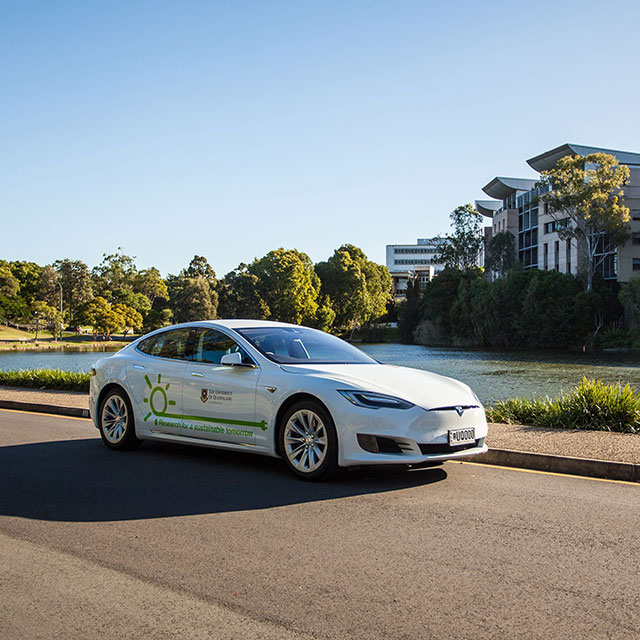
This article was originally published on UQ News.
“If I die tomorrow, I want to know that my research has made a difference.”
So said School of Civil Engineering PhD candidate Stephanie Ballon-Romero, when asked why she chose to study transport engineering.
Because thoughts of death were never too far away when she was growing up in Peru – with inadequate and developing road infrastructure, many fatal accidents happened.
“I felt that this was something I could improve, and so I decided to study civil engineering at the Universidad Católica Santa Maria,” she said.
“Most people think of civil engineering as just designing structures such as bridges, but it can also include analysing transport systems and how people travel between places – whether by foot, bike or vehicle.
“I enrolled in every transport course I could in my undergraduate degree and enjoyed it. In fact, my honours thesis was The study, simulation and optimisation of traffic flow along Jorge Chavez Avenue in Arequipa.
“Transport engineering is a fascinating topic that can literally help save lives.”
With such a passion for her subject, it was only natural that Ballon-Romero would pursue further studies. Having learnt Chinese as part of her program – second languages are highly regarded in South America – she successfully applied for a government scholarship to complete a Master of Engineering in China. Under the supervision of noted traffic analyst Professor Hongmei Zhou at the Dalian University of Technology, she then completed the paper, An extension of the theory of planned behaviour to predict pedestrians’ violating crossing behaviour using structural equation modelling.
“The ‘theory of planned behaviour’ tries to understand why people do certain things, especially reckless behaviour like smoking or crossing a road when the light is red,” Ballon-Romero said.



